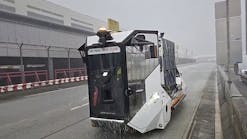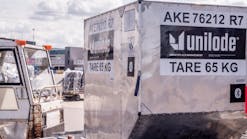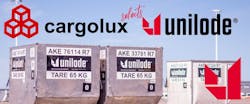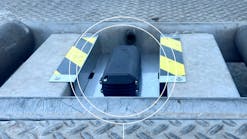Hactl Signs Up To New ULD Code
Hong Kong, June 26, 2019 -- Hong Kong Air Cargo Terminals Limited (Hactl) – Hong Kong’s major independent handler – is the latest air cargo organization to throw its weight behind ULD CARE’s new Unit Load Device (ULD) Code of Conduct.
The 10-point Code of Conduct is a voluntary agreement promoting best practice in the handling of ULDs, and represents a gold standard benchmark for their safe and efficient operation on the ground and in flight. The Code’s primary aim is to reduce avoidable damage and loss of ULDs throughout the supply chain. A number of airlines, handlers, forwarders and ULD suppliers have already signed up to the code.
Hactl signed the Code of Conduct Agreement at IATA’s International Ground Handling Conference in Madrid; it is the first Hong Kong organisation to do so. Explains Hactl Chief Executive Wilson Kwong: “The ULD is fundamental to the modern air cargo industry; but it’s an everyday item that we all take for granted, and which many do not treat with the necessary care and respect.”
Hactl is one of the largest handlers of ULDs in the world: in 2018 it processed 1.14 million units. Hactl operates within its own strict set of ULD handling procedures, and provides thorough staff training. It uses its COSAC-Plus system to manage its customers’ ULD inventory and provide real-time status information that includes photographic images of all equipment.
Continues Kwong: “Damaged ULDs represent a colossal bill for the industry every year. In extreme cases, they can also reduce protection for cargo, and cause localised equipment shortages that disrupt schedules and impair flown-as-booked performance.
“We congratulate ULD CARE on recognising this problem, and launching a simple but effective initiative that should help to mitigate the problem through heightened awareness.”
There are some 900,000 ULDs in circulation worldwide, with a replacement value of around US$ 1 Billion. Repairs cost the industry around US$300 million every year, while some 5% of the global ULD inventory (45,000 units, worth US$ 50 million) simply go missing.
Vice-President of ULD CARE, Bob Rogers, says: “Codes of conduct are not commonly found in aviation, as civil aviation regulations generally set the required standards. However, when it comes to ULDs, many ground operations take place outside the regulated framework, which is why we believe there is a need for supplementary guidance in the form of our new Code of Conduct.
“The Code is derived from the IATA ULD Regulations and, when integrated with other ULD CARE solutions, it places a firm foundation under ULD operations – whether in an airport terminal or on the ramp, or off-airport at a freight forwarder’s or shipper’s premises.”
He concludes: “We are delighted to have a handler of Hactl’s stature signing up to the Code. While they clearly don’t need any additional guidance on ULD operations, their support for the Code is an invaluable endorsement from an industry leader, and assists in spreading the important message that we must take greater care of this vital industry asset.”
Headquartered in Montreal, and originally a division of IATA, ULD CARE is a global not-for-profit organization whose membership comprises ULD owners, operators, manufacturers and service providers. ULD CARE provides the IULDUG System (which facilitates the interline movements of ULDs and tracks them worldwide when outside the control of their owner). ULD CARE also promotes better understanding of the proper operation and handling of ULDs across the industry via its book “ULD Explained” (an illustrated guide to the basics of ULD Operations and Handling), and the staging of an annual conference (this year, in Montreal).





